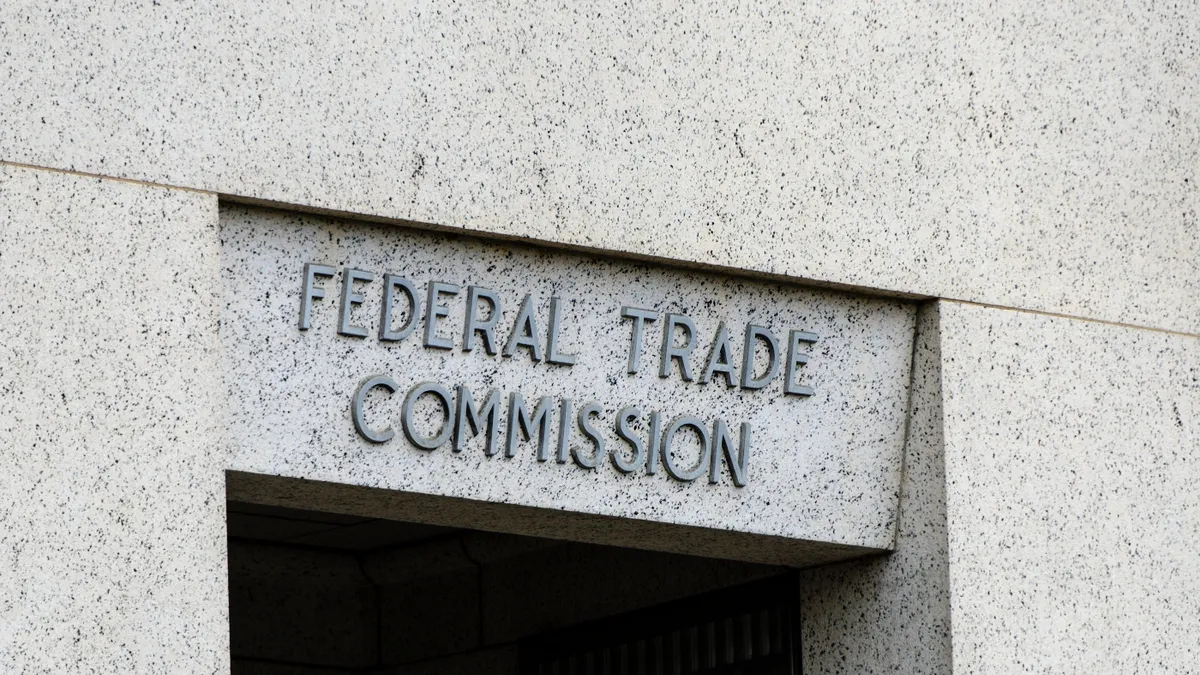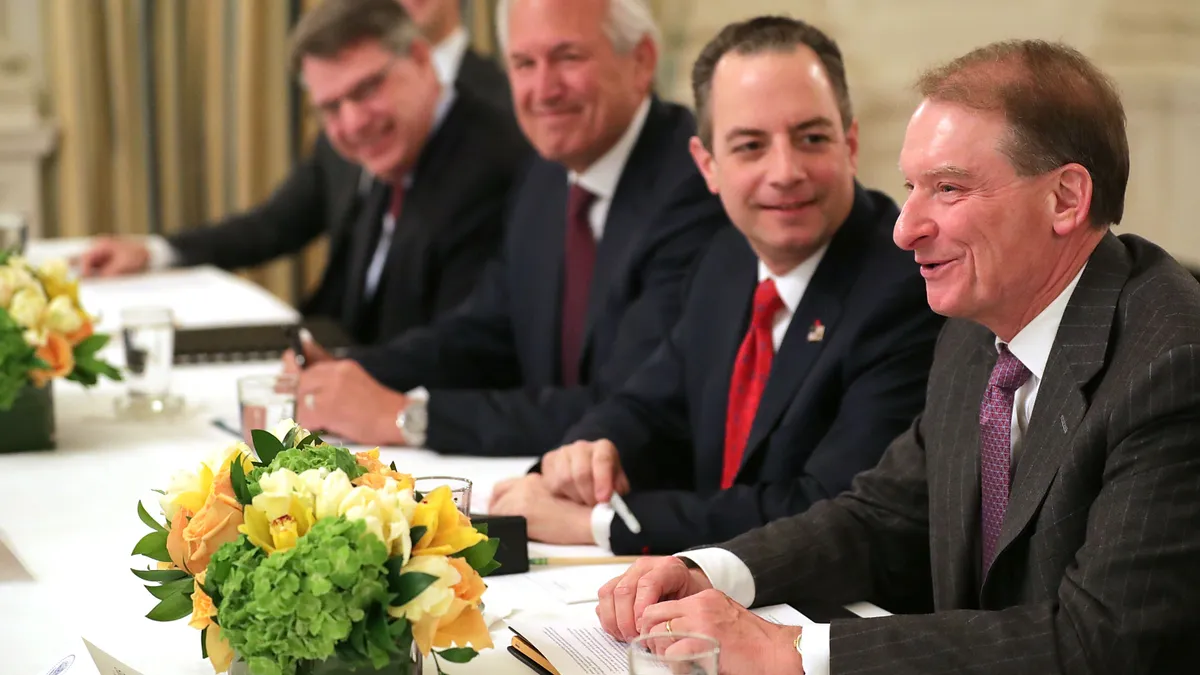Shareholders filed more environmental, social and governance proposals to company boards in 2023 than ever before, with the Sustainable Investments Institute tallying 630 ESG proposals as of August. That record number of filings led to record number of votes on ESG topics, as Diligent Marketplace Intelligence reported companies had topped the prior year’s total by June.
However, that increase in votes was met with shrinking support from companies’ shareholders. Support for environmental and social proposals fell to 21.7% and 17.7%, respectively, from 34.2% and 24.5% support in 2022, according to Diligent.
Helping drive the decline, the political discourse around ESG has led to a rise in anti-ESG proposals coming before companies, which are counted as ESG proposals. Add subpoenas from Republicans in the House of Representatives and statewide offices to the environment, and major asset managers have also started to back off of their support for environmental and social-related shareholder proposals.
Approval rates for shareholder proposals dropped across the board, falling from 31% in 2022 to 23% in 2023, The Conference Board reported in October. The dip didn’t just hit ESG, with drops in approvals for executive compensation and human capital management proposals as well.
In the same report, Merel Spierings, senior researcher for The Conference Board, warned companies to prepare to see even more proposals on “hot-button social and environmental topics” in 2024 than 2023’s record year, even ones that are unlikely to garner support.
"Despite the decline in support for shareholder proposals in the 2023 proxy season, companies must prepare for more politically motivated proposals next year as the country heads into federal elections," Spierings said.
Major asset managers are driving the dip
The sign of a shareholder proposal’s success is not always simply passing, especially considering all proposals are non-binding. Proposals that don’t pass, but garner significant support can send a broader sign to the company of investor interest. In fact, a proxy vote itself is often a sign investors or advocates have approached a company on a topic, and the company has refused to take action, Heidi Welsh, executive director of the Sustainable Investments Institute told CFO Dive sister publication ESG Dive.
When assessing the decline in ESG approval rates, experts say a good place to start is proxy voting decisions made by the Big Three asset managers.
Josh Zinner, CEO of the Interfaith Center on Corporate Responsibility, told ESG Dive there’s been a regression in proxy voting patterns from the largest asset managers and said he thinks the political pressure is having an impact on environmental and social proxy voting patterns.
“Based on their philosophies — understanding climate risk, understanding other systemic risks that are out there — and their track record and proxy voting, it’s noteworthy that there has been this retrenchment. And it may be that all of the political pressure is creating a reluctance to show support for ESG resolutions,” Zinner said.
As the largest asset managers in the nation, BlackRock and Vanguard also hold outsized power during the proxy vote season. Simply put, “they vote more than anybody else, because they own so many assets,” Julie Gorte, SVP of sustainable investing for Impax Asset Management, told ESG Dive.
Support from BlackRock and Vanguard for environmental and social proposals dropped dramatically in 2023, to 7% and 2% from 20% and 12%, respectively. At the time, both firms attributed their declining support to overly prescriptive proposals, however, Zinner and Welsh have both contested that claim, saying the proposals last year were either similar or the same as those put forward previously.
“Our focus remains on identifying proposals that address financially material risks at a given company, supporting proposals that may fill gaps in the company’s current practices (while not intruding on company strategy and operations) and providing sufficient latitude to the company on implementation,” Vanguard’s investment stewardship report said in August.
A BlackRock spokesperson pointed to the asset manager’s own report, which said many proposals had requests that had already been “substantively met” by companies, and “the number of single-issue proposals where the request made did not have economic merit also increased.”
Taken together, the declining support for environmental and social proposals from these asset managers depressed the overall support for resolutions. The Harvard Law School Forum on Corporate Governance estimated that without their votes, more than double the amount of proposals — 59 from 28 — would have received over 40% support, the threshold to be considered a key resolution. Additionally, the report estimates average support for “near-miss” resolutions, or those that receive more than 30% but less than 40% of the vote, would jump from 34% to 44%, without the Big Three’s votes.
“If you take them out of the mix, the voting hasn't really changed that much,” Gorte said.
Anti-ESG proposals rise, but support doesn’t
While the impact of major asset managers regarding ESG proposals has received a lot of attention, the subsequent rise in proposals that seek companies to take measures against ESG principles has been less noticed. The number of anti-ESG proposals have tripled in the past three years, as 79 were submitted to companies in 2023, up from 30 in 2021, according to the Sustainable Investments Institute.
Most of those proposals — two-thirds — were on the topic of eschewing diversity, equity and inclusion practices and anti-racism initiatives. Another 25% were related to corporations’ political involvement and just over 10% were about the environment. The report said at least 52 of those would reach a vote. None broached the level of support needed for resubmission within a year, averaging 2.4% support.
Welsh said a “constellation” of different groups have begun filing these resolutions, but they all emanate from the far right of the U.S. political spectrum.
“These are political groups. They're pushing a political agenda. They're not investors, and the capital markets don't think much of these proposals,” Welsh said.
The proposals and the parties that have submitted them have taken cues from elected Republican officials who have used their positions in the House of Representatives, state legislatures and statewide offices to make ESG investing and the use of ESG principles more onerous. That has come in the form of subpoenas from the House Judiciary or laws that boycott companies that use ESG — including one recently introduced in New Hampshire that would make knowingly using state funds for ESG purposes a felony punishable by up to 20 years in jail.
Politics and AI to take center-stage in proxy arena
With an expectation that even more ESG-related proposals and anti-ESG proposals are on the way, several topics have already begun to emerge as ongoing themes for the 2024 proxy season.
One is the inextricable link between the political environment surrounding the ESG landscape during this election year. Though both Florida Gov. Ron DeSantis and businessman Vivek Ramaswamy — the former having a track record of anti-ESG bills and the latter promoting an “anti-woke” investment philosophy disregarding ESG initiatives — have dropped out of contention for the Republican presidential nomination, they have thrown their support behind frontrunner and former President Donald Trump.
According to Gorte, political discourse is expected to get louder before it quiets down.
“I don't think this political discourse is with us forever. I think it's been chosen as a campaign issue, which is gonna ramp up this year, and is being driven by some people with big warchests,” Gorte said. “So it's not going to disappear any time soon, but I don't think it's a permanent feature of the financial industry.”
Another is the expectation that artificial intelligence will be a major topic of discussion for boardrooms this year, after the explosion of ChatGPT and other AI models. Votes on AI guidelines and practices are already assured to take place at Disney and Apple, after the Securities and Exchange Commission ruled this month they couldn’t exclude a proposal the American Federation of Labor and Congress of Industrial Organizations submitted to each board.
Welsh and Gorte expect more AI-proposals to prop up this year. Welsh said AFL-CIO — the nation’s largest federation of unions — had submitted similar proposals at half a dozen companies.
However, the technology also raises potential social issues with data privacy, misinformation and discrimination risks.
“AI has a huge potential to be both helpful and disruptive,” Gorte said. “Using it in the ways that make businesses better is going to be increasingly tough unless you're really careful with how you train your model.”
Gorte said shareholder proposals typically are a year behind national discussion, and beyond expects issues of how companies approach biodiversity to be the next frontier of proposals on executives’ desks.
Vanguard and State Street did not respond to requests for comment for this article






















